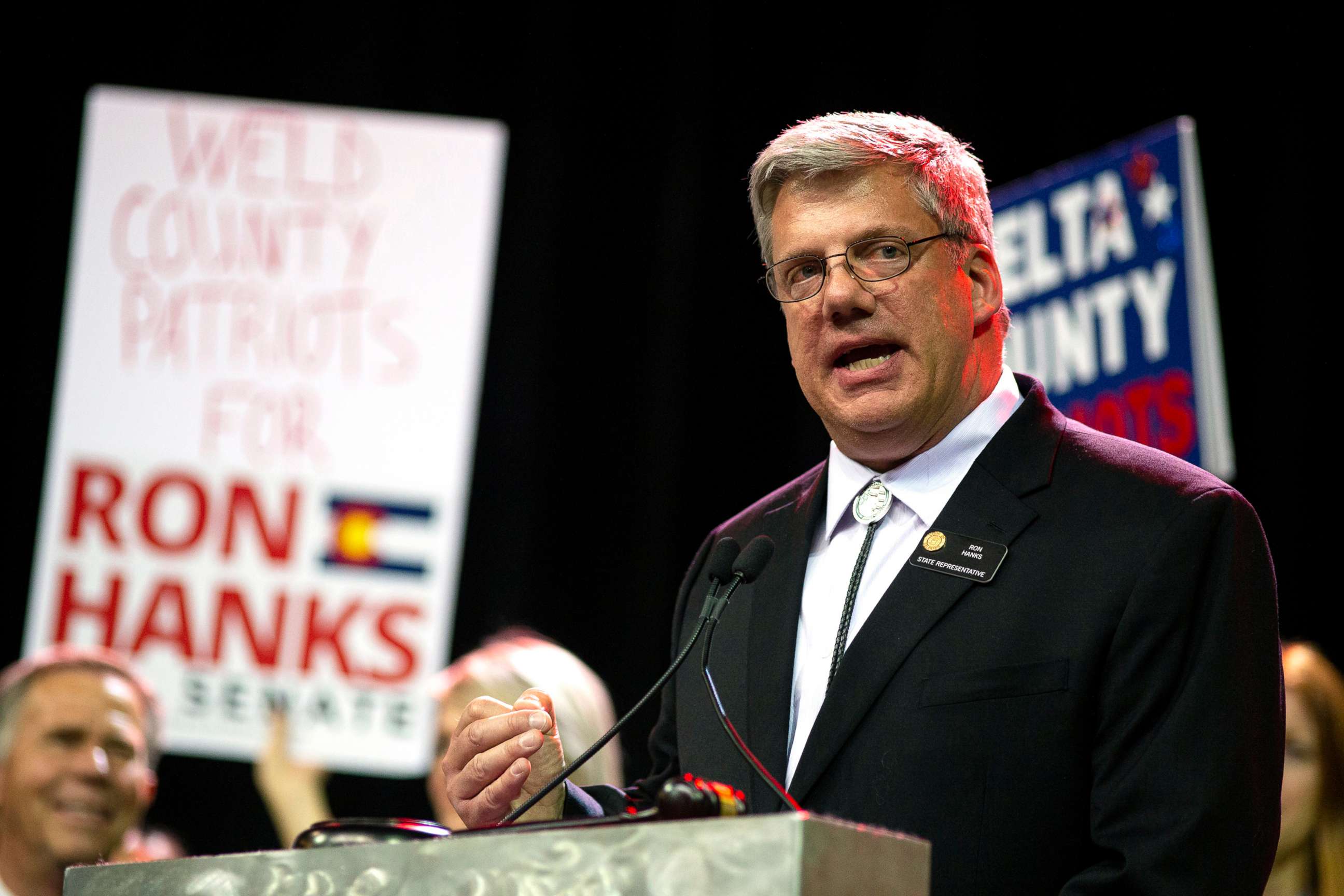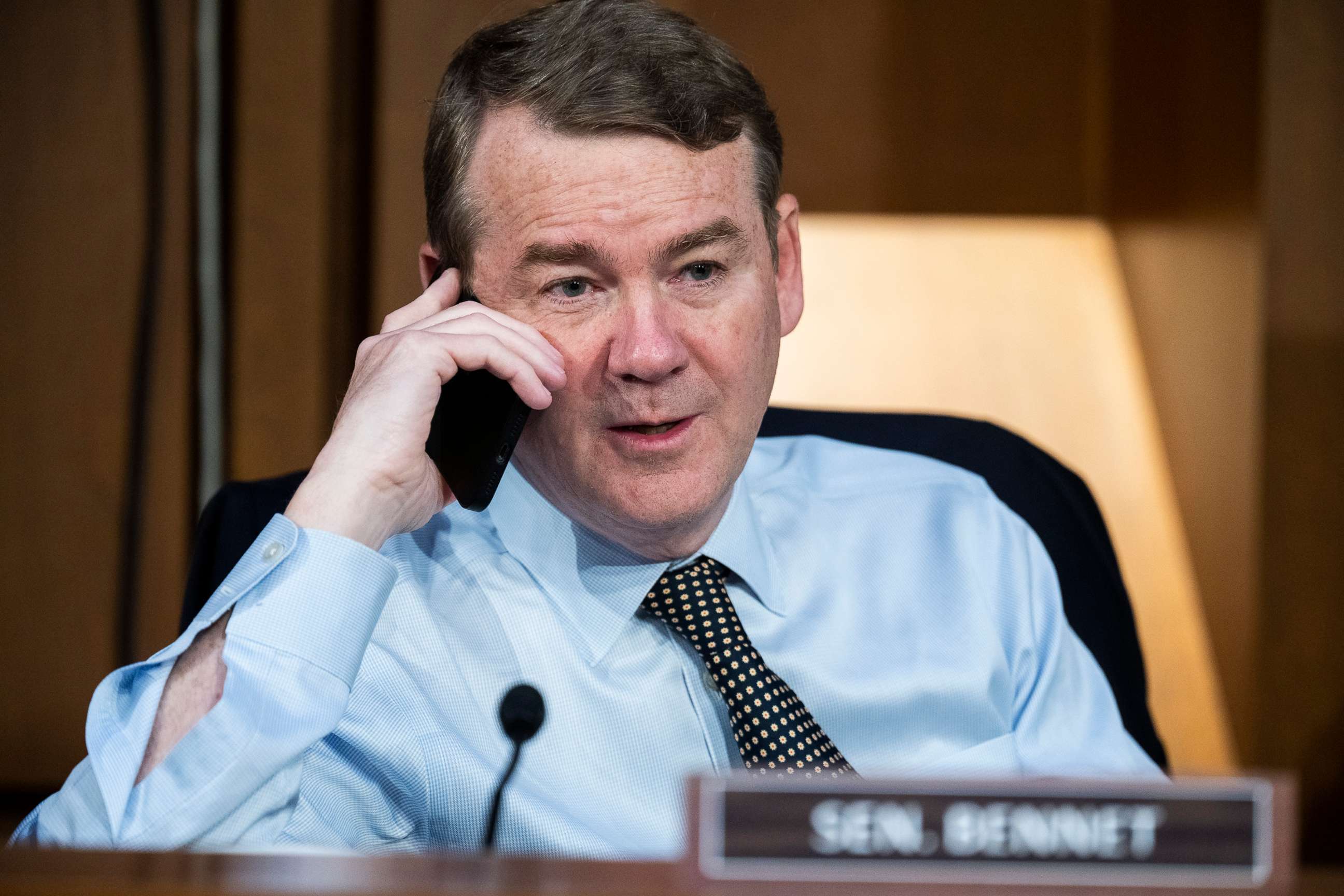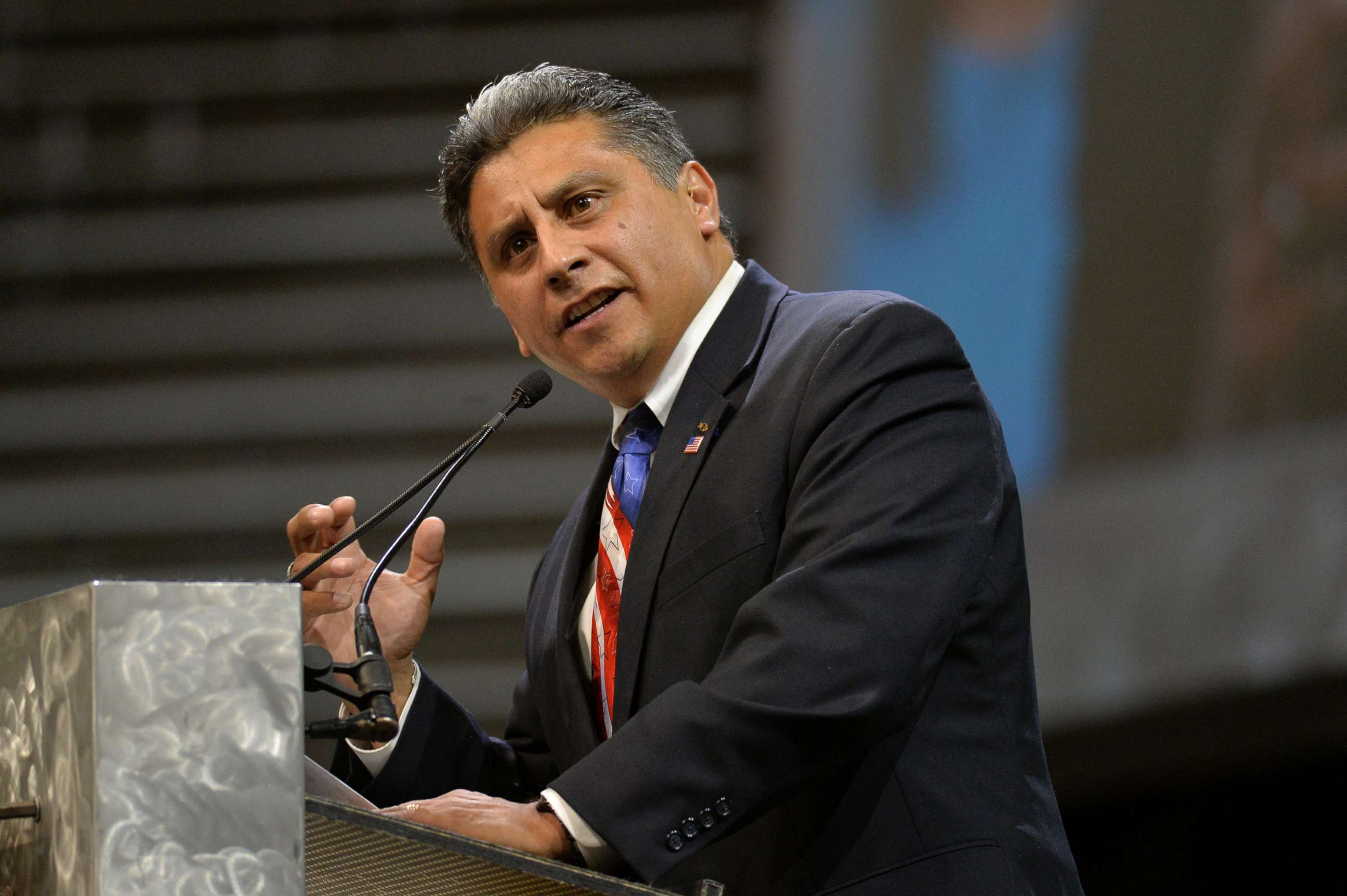Why Democrats spent millions in some GOP primaries -- betting they can sway the base
It's the latest example of a familiar political plan.
Colorado voters on Tuesday will choose party nominees in a variety of local and statewide races -- and put to the test a multimillion-dollar plan by left-leaning groups there hoping to gain an advantage in the November midterms by influencing the Republican primaries.
Democratic-affiliated organizations have spent millions on political ad contracts to boost pro-Donald Trump candidates in the nominating contests, highlighting the platforms of those who deny the legitimacy of the 2020 presidential election while attacking more moderate GOP politicians.
It's the latest example of a familiar political plan that isn't just playing out in Colorado: The goal is try and help pick the Democratic opponent -- and in this case, to try to engineer the victory of ultra conservatives who may then prove weaker with the broader electorate.
History shows such tactics can have success. In 2010, the Democratic Governors Association nicknamed several GOP gubernatorial candidates, including Republican nominee Dan Maes, "Christine O'Donnell Republicans" to try to persuade voters to reject their electability. Maes ultimately lost his general election to then-Denver mayor -- and now Senator -- John Hickenlooper.
Still, some Democrats warn that the gamble comes with more risks than benefits: The boost of extreme Republicans could help elect candidates who repeal rather than uphold Colorado's codification of abortion access -- or who champion false claims of mass voter fraud, joining a rising tide of conservatives in other states who will control elections after challenging past results.
"I think it's very dangerous and potentially very risky to elevate people who are hostile to democracy," Howard Wolfson, who served as a counselor to former New York City Mayor Michael Bloomberg, told The Washington Post.

The strategy is most prominent with the nascent organization Democratic Colorado, which has spent more than $4 million in TV advertising across the state related to the GOP Senate primary. The new super PAC filed registration with the Federal Election Commission on June 2 and reserved more than $1.5 million last week to amplify the conservative credentials of right-wing, election-denying state Rep. Ron Hanks.
Hanks, who also takes a staunchly conservative stance on total abortion bans and claimed to have marched to the U.S. Capitol on Jan. 6, 2021, without entering the building, lags millions of dollars in fundraising behind the more moderate Joe O'Dea, a businessman.
Hanks raised just over $124,800, of which he supplemented $35,100 with personal loans. The wealthy O'Dea has more than $2.3 million. Unlike Hanks, he has affirmed his support for a bill to codify abortion rights nationwide but said he wouldn't vote for late-term abortions.
The winner of their primary will face incumbent Democratic Sen. Michael Bennet.
One 30-second Democratic Colorado ad aired on June 8 portrayed Hanks as a candidate who wants to "build Trump's border wall" and "wants increased access to guns," deeming him "too conservative for Colorado."
A week later, Democratic Colorado revealed a new advertisement that criticized O'Dea for supporting President Joe Biden's spending bill and previously donating to Bennet.

Separately, targeted ads have made their way into Coloradoans' mailboxes emphasizing O'Dea's previous ties to Democratic politicians like "gun control advocate John Hickenlooper." (The mailer refused to disclose who paid for the message distribution -- a requirement under federal election law.)
The tactics did not go unnoticed by O'Dea's campaign or the Republican Party at large. In a statement, O'Dea accused Democrats of "propping up Ron Hanks in a desperate attempt to save Senator Michael Bennet." His campaign filed a federal election complaint, requesting that a federal judge block the mailers.
On June 20, the National Republican Senatorial Committee also filed an FEC complaint about what they called Democrats' "coordinated effort to hurt Republican candidate Joe O'Dea."
"These are egregious and reprehensible violations—the mailers violate black letter campaign finance law," said Brent Owen, an O'Dea for Senate attorney.

A similar dynamic has played out in the Colorado gubernatorial race and the GOP congressional primary for the newly drawn 8th District. The DGA donated $500,000 in late May to Strong Colorado for All as well as another $1 million early June. The DGA remains the largest donor to the state-level super PAC.
Strong Colorado for All then donated $600,000 to state-level super PAC Colorado Information Network, which aired ads -- which were set to run up to Election Day -- against the Republican candidate for governor Greg Lopez. Although the ads ultimately concluded Lopez was "too conservative for Colorado," they also highlighted his Republican stances on abortion and LGBTQ marriages and his loyalty to Trump's baseless claims of widespread voter fraud in 2020.
When asked about this campaign strategy, DGA spokeswoman Christina Amestoy said in an email to ABC News: "Greg Lopez holds views that are too extreme and out-of-touch for Colorado. Voters need to know what he believes in, what he would push on the state, and just how dangerous of [a] governor he could be."
Strong Colorado for All did not respond to a request for comment.
Meanwhile, in Illinois, incumbent Democratic Gov. J.B. Pritzker and the DGA have spent $32 million to elevate state lawmaker Darren Bailey, who is running against former Aurora mayor Richard Irvin in Tuesday's Republican primary election. And ahead of the California primaries earlier this month, the House Majority PAC promoted right-wing candidate Chris Mathys against moderate incumbent David Valadao in the 22nd District.




